Guide To: Finding Your Perfect Breeder
Buying and owning a puppy is probably one of the biggest decisions you can make. The UK Pomsky Kennel Club was setup to educate prospective owners and connect them to UK breeders that have united under a shared code of ethics & breed standard.
However, every breeder works differently.
Our Kennel Club does some of the legwork for you by vetting our breeders and encouraging best practices however the information here is aimed to supplement your own research in finding the right breeder for you. Everyone has different needs and no one breeder fits all.
Your new puppy will be a member of your family for hopefully ~15 years or more. This means you need to make the right choices when choosing your breeder & puppy and by doing so correctly you’ll enjoy these years with your dog to fullest with fewer trips to the vets.
Some people will cope well with a rescue that often need an experienced or focused owner, due to the lifestyle the dog is used to.
Others may want to ensure they are getting the healthiest dog from health tested lines, some may want to know the pedigree of the dog and some may be more focused on the dogs temperament.
Here we help you with some questions to ask and some red flags to look out for.
1. Find an Established Breeder
Finding an established breeder will give you peace of mind. This doesn’t mean a breeder that is new to breeding pomskies is bad, it just means you can ask for recommendations, join their social community and interact with existing owners; people who have dealt with the breeder and hear first hand of their experiences.
Breeders can be friendly but remember, they are ultimately hoping to sell you a puppy and will tell you what you want to know.
You can ask if the breeder is licenced. Some breeders live in areas where the local council impose the scope for a licence differently, often based on arbitrary conditions such as the amount of animals bred or the size of their indoor/outside space. This means that it is possible for a breeder with excellent ethical standards to be unlicenced and in contrast other breeders legitimately “licenced” to be running exploitative breeding establishment/puppy farms.
Having a licence does not mean you, as a prospective owner, are in safe hands, it simply means that a certain criteria has been met on paper which sadly doesn’t always equate to real world ethical welfare & breeding standards.
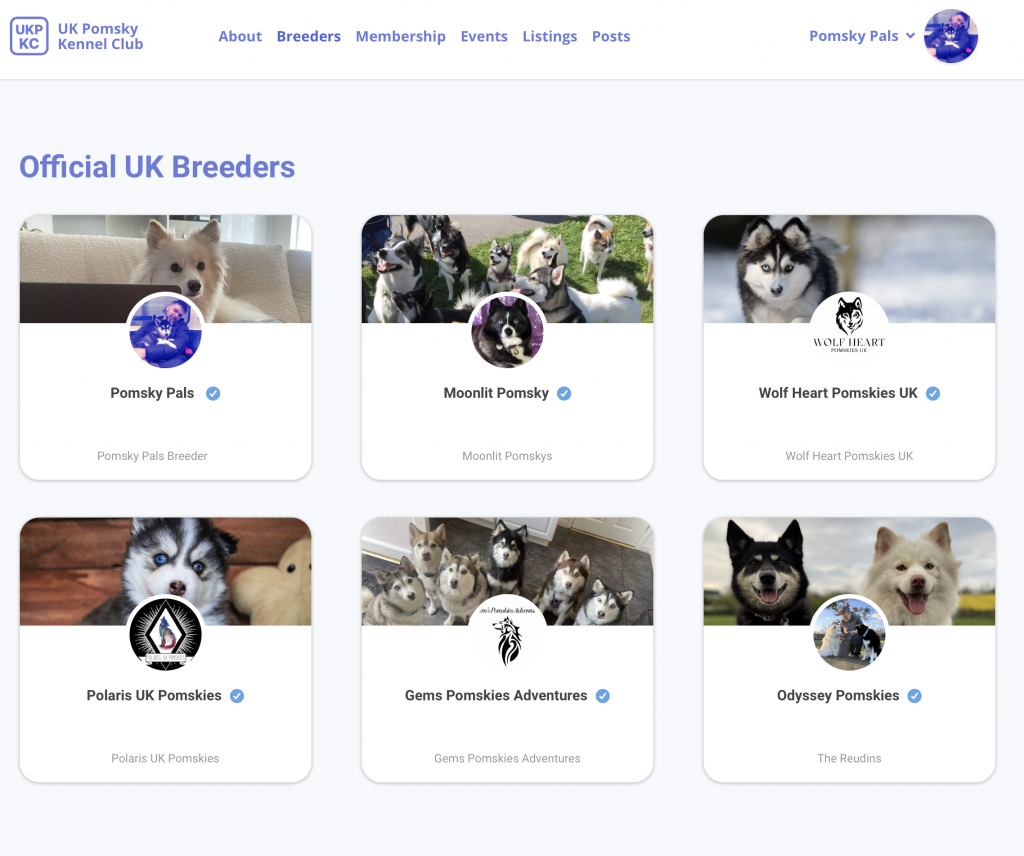
The UK Pomsky Kennel Club is a good starting point but good breeders can be found anywhere. It’s up to you, the prospective owner, to be critical, conduct research and verify claims in order to truly authenticate a good breeder.
2. Look For & Ask For Health Test Results
Firstly disregard vague terms such as “Fully Health Tested” or “Excellent results”. These kind of statements are baseless claims until you know exactly which tests, schemes and most importantly what the explicit results are.
Remember, simply having a health test does not mean that the result is good and the dog is fit for breeding. A good breeder is often willing to share explicit results even when they are good, bad or mediocre.
Not all breeders carry out health tests on their dogs. Some may only take them for a wellness exam at the vet and this is far from enough.
A good breeder is thorough, transparent and explicit in sharing all their health results; often displaying schemes & result data via their website through publicly accessible links to health documentation & certification of the individual breeding animals.
If a breeder is not upfront, vague or overly implicit, ask them to publish the explicit results & certification for exams such as DNA panels (Embark), Hip & Elbow scores and Eye exams. A responsible owner doing their due diligence of research should be curious to interpret what the results show and learn how these health results may affect the offspring; your potential puppy. You may even wish to validate results with the awarding body.
Be mindful of statements like “Health testing results available on request” . Ask yourself why the breeder chooses not to outright publish the results publicly (and save themselves from answering a mountain of repeated questions & requests).
Health test results can be complicated and difficult for prospective owners to interpret.
“Available on Request” can be used as deception tactic for breeders to not disclose bad health results (they anticipate that many owners won’t ask) and when asked by prospective owners they can then control how you interpret the results in private, potentially putting positive spin on otherwise mediocre or bad results, they may instead outright mislead you and show falsified documents.
“Available on Request” can be used ethically when offered as a way to share more detailed & full documentation (without redaction) only when a result sample is already made publicly available.
Here are some resources to help you independently interpret some common but not all health results:
• Understanding Embark Results
• Understanding BVA Hip Results
• BVA: hip-breed-specific-statistics-2022.pdf
• Understanding Hip & Elbow Scoring
• Compared Schemes: OFA/BVA Vs. PennHIP®
If you would like help interpreting health results published by a breeder feel free to reach out to us at: info@pomsky.org.uk
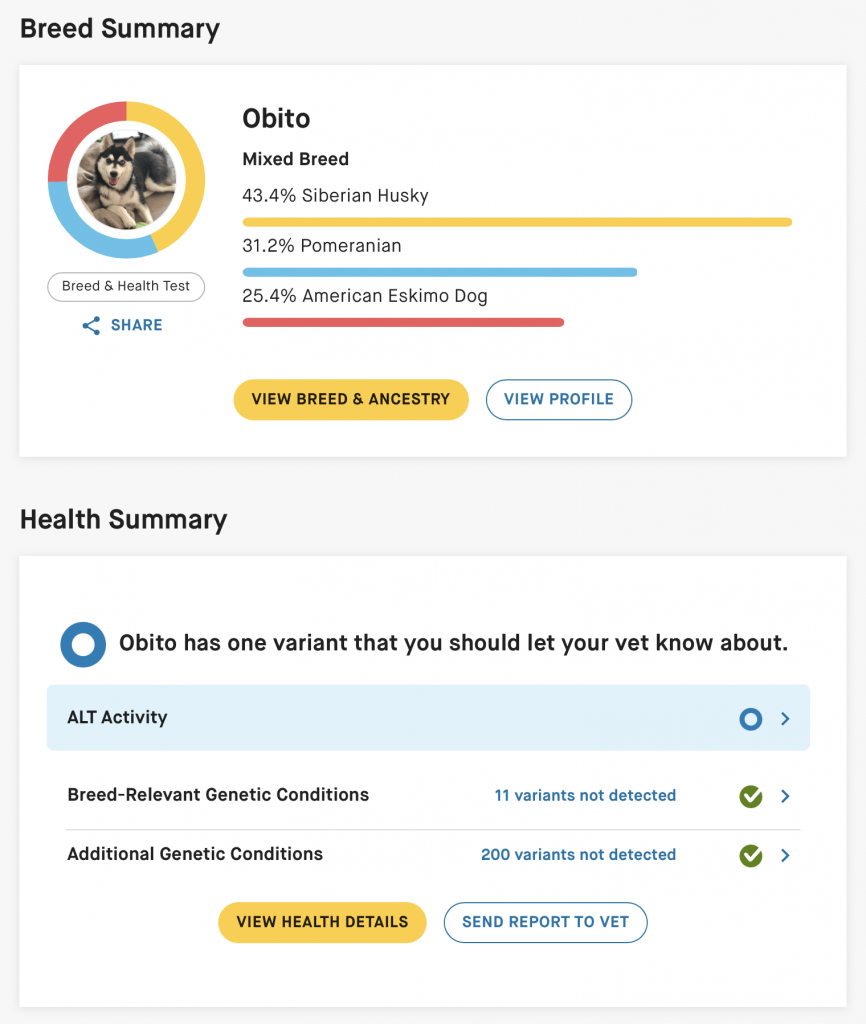
Embark DNA Panel are published publicly and viewable via URL: Example Results: http://embk.me/obitomoonlit
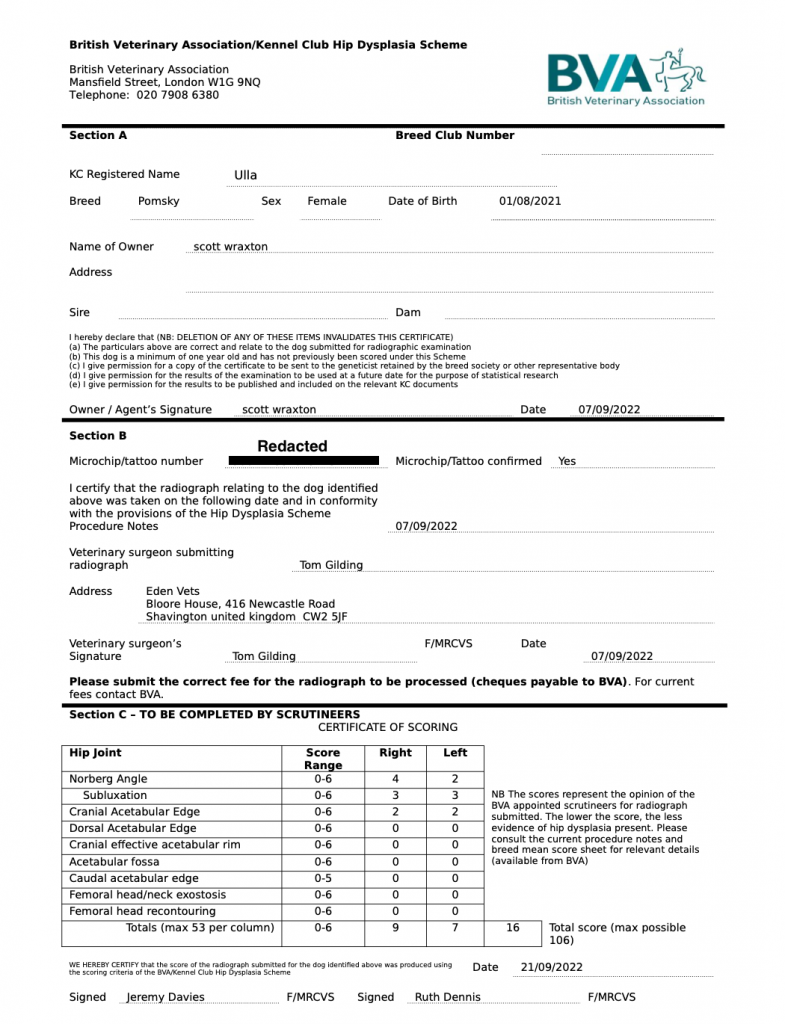
Sample images of health documentation (BVA Hip) can safely redact sensitive information for publish. For security, we recommend breeders publish these samples as images and do not upload full documents such as PDF.
3. Ask If The Breeder Holds Any Qualifications
A sign of a great breeders is that they are undertaking courses to better themselves and to keep up with current practices and legislation.
Canine First Aid, Canine Dog Training and Breeding & Socialisation, are a few qualification we feel are beneficial to breeders.
In addition, ask if they have taken any of their dogs to training school. Having a dog trained with something like the KC Good Companions is a huge bonus as this kind of training helps the breeder learn as much as the dogs and this experience filters down into all the puppies the breeder produces!
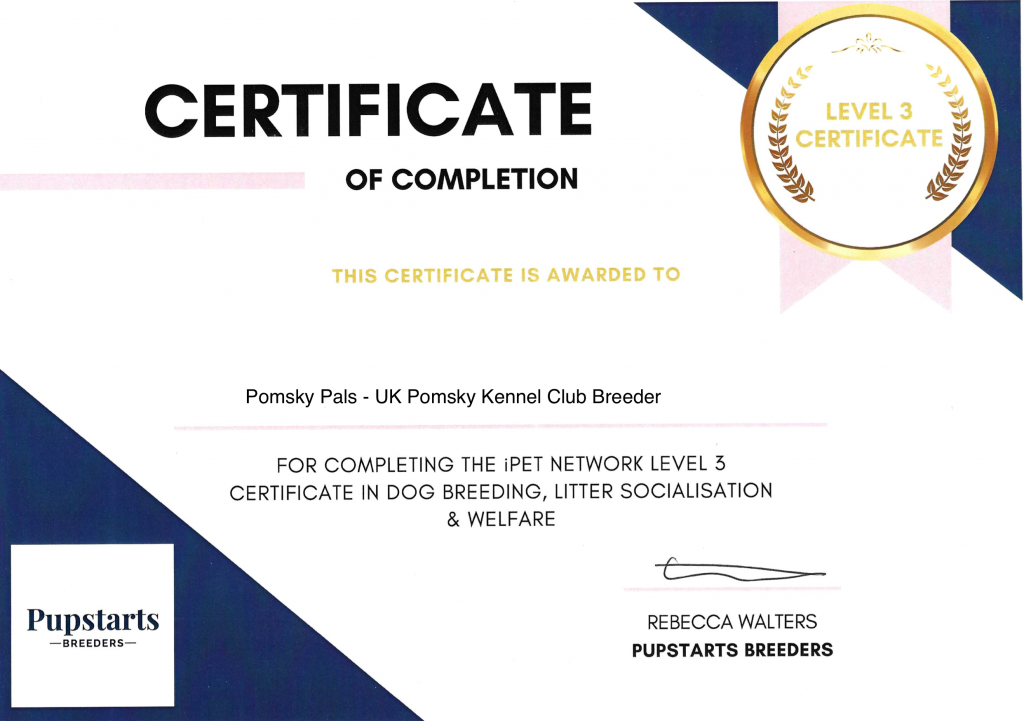
Pupstarts Breeders offer great courses to help educate and expand a breeder’s knowledge.
4. Ask About The Parents
Most breeders will be happy to chat at length about their dogs. In fact they probably wont shut up once they start!
Ask about their temperaments, how they get on in a stimulating environment, how they react to other dogs and if they have any issues with challenging behaviours. Were they easy to train? What are they like off lead?
Parent dogs pass on lots of traits to their pups. Ask if you can meet the parent dogs especially the mother (but ideally the father also) and the litter’s breeder. As of 2020 Lucy’s Law states puppies cannot legally be sold if you as a buyer do not see the puppies interacting with the mother and if the puppies are sold through a 3rd Party (You must purchase directly from the breeder).
It is normal for breeders to welcome you into their home but others may want to meet you initially away from their home until they get to know you better. This is normal and ensures the safety of themselves, family and dogs.
Many breeders host meet-ups for their past puppy owners which you can attend. By meeting the dogs and the breeder in this way you can both assess if you are a good match.
Check out our Events page to attend one of our meet-ups:
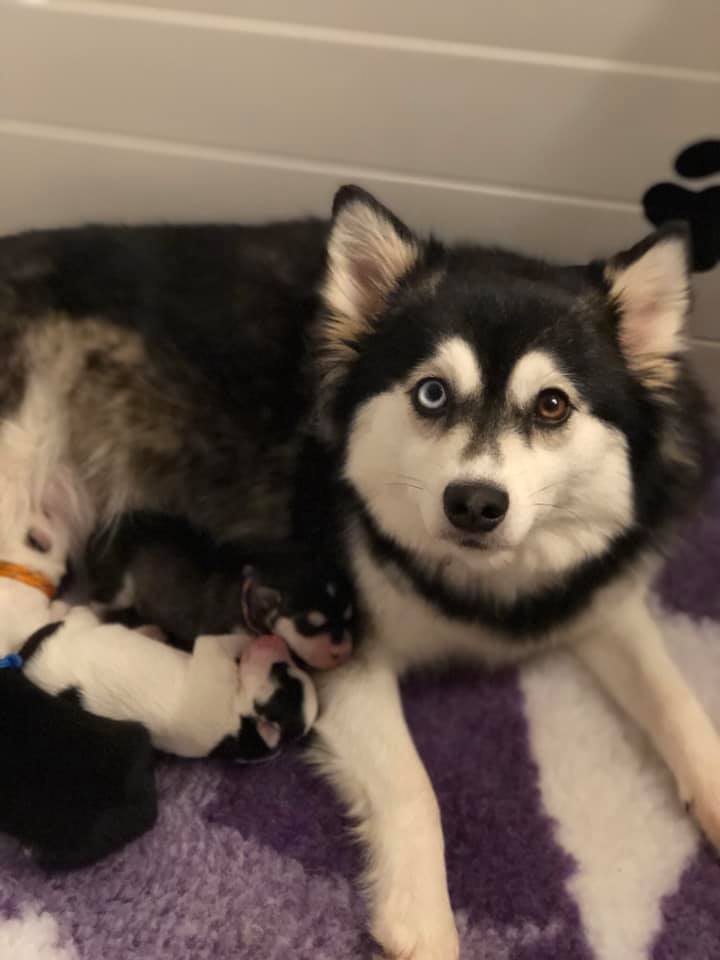
It is important that you see the puppies with their mother and that you purchase directly from the breeder. If you do not then it is possible you are supporting an illegal puppy farm.
5. Ask About How the Breeder Raises Their Puppies.
During the time the pups spend with the breeder they will go through two socialisation periods. Ask the breeder how and where they raise their pups.
- Do they raise them in the home or separate space?
- Do they do any neurological stimulation with them?
- Do they begin potty training and crate training?
- Do they socialise them? Take them out in the car, introduce them to household noises and people?
The more socialisation done at this stage, the better and less stressful it will be for the pup as it goes on to its new family.
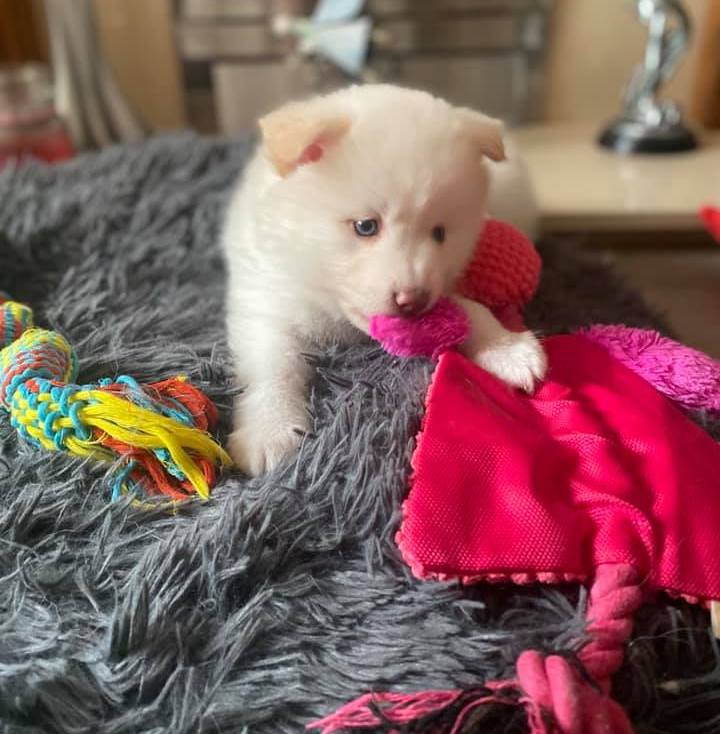
Socialisation is vital to a puppies longterm health. The more work a breeder puts into socialising the puppies the better equipped they are for the road ahead.
6. Ask How The Breeder Allocates The Puppies
Breeders allocate their puppies in various ways:
- Some breeders will let potential owners choose their pup.
- Some offer pick of the litter.
- Some allow the choosing as soon as they are born.
- Some wait until they are around 5 or 6 weeks.
- Some breeders actually suggest which pup will be a good fit for the family.
There are no right answers here but asking the breeder in advance helps to manage your own expectations as a prospective owner.
Many good breeders prioritise prospective owners that demonstrate good ethical conduct through research, asking questions about their health results and verifying documents. This is because owners that care about good ethical conduct make for better puppy parents and breeders want the best possible owners for their puppies.

Whatever it may be, you should respect how the breeder has chosen to allocate their puppies.
7. Lucy’s Law
On the 6th of April 2020 the UK government passed an important piece of legislation. Media vet and author Marc Abraham was the founder of Lucy’s Law and campaigned for 10 years to get this law passed in parliament.
This legislation states:
- Puppies MUST be seen with and interacting with the mother.
- Puppies can only be sold by the breeder and not via a third party.
If a business sells puppies outside these conditions they could receive an unlimited fine or be sent to prison for up to six months.
The Government has also launched the ‘Petfished’ campaign to highlight conditions and deceitful tactics pet sellers use to trick buyers into thinking they are responsible breeders selling healthy animals. The campaign urges the public to look out for warning signs which suggest the seller could be an illegal third-party dealer such as litters without a mum present or being rushed through a sale.
For more advice on how to buy a pet safely visit:
https://getyourpetsafely.campaign.gov.uk/

It is named after a spaniel called Lucy who was used for breeding on a puppy farm in South Wales from where she was taken in 2013 by an animal rescue organisation.
8. Ask About Support
A good breeder will support you for the lifetime of your puppy. They will be there to offer advice on training, feeding and health and answer any questions you might have as you raise your puppy.
They will also ask that you return the puppy to them if find yourself in a situation where you could no longer care for the puppy. This is done because breeders are often better connected and knowledgable of the breed, which enables higher chances of successfully rehoming and less stress for the animal throughout the process.
This clause should be included in the contract that you get from the breeder if you are offered a puppy.
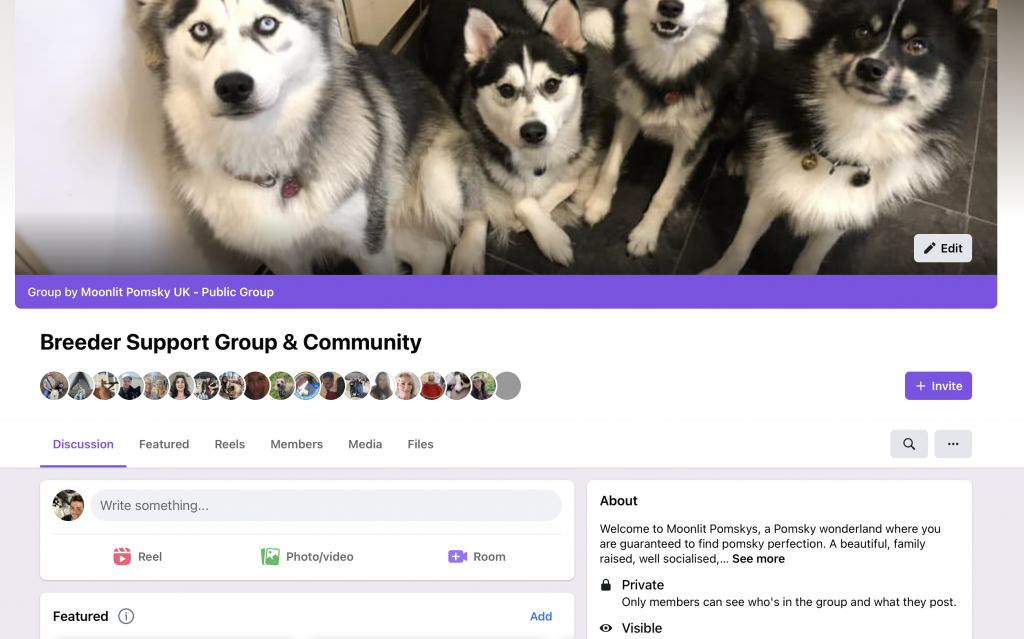
Many breeders host community groups on social media where owners can connect and share their experiences, ask questions and get help from each other.